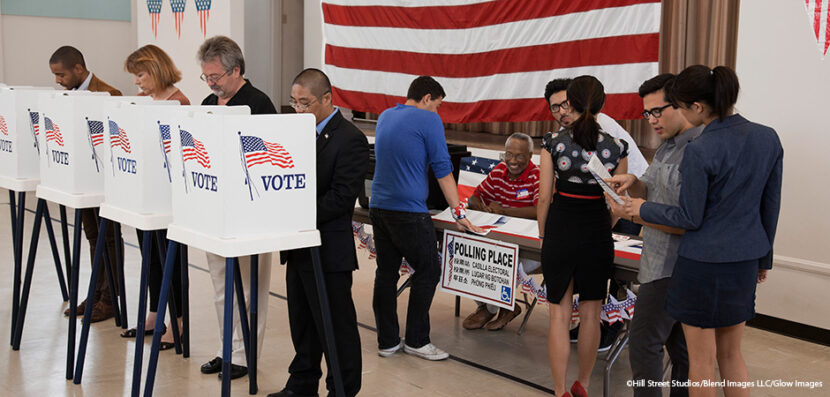- Current Events New Alabama Congressional District Selects Candidates
- Current Events Nebraska Rejects Winner-Take-All Proposal
- Citizenship Voting Under Age 18
- Citizenship Citizenship in Action
- Democratic Party Biden’s and Trump’s Recent Primary Results
- Elections Trump and Biden Win South Carolina and Michigan Primaries
Voters Challenged in Texas
Shortly after he was elected to the presidency in 2016, Donald Trump began complaining publicly about voter fraud. According to him, hundreds of thousands of people had cast ballots illegally and would continue to do so until rules about voting were tightened up. However, political experts wondered what evidence the president had for this claim, and argued that no significant voter fraud had ever been found.
Why is this such a critical issue? Because accusations like these seriously undermine our democratic model by causing people to lose faith in the fairness of the election process. Right now, this same argument over voting rights is taking place in a smaller scale: in Texas, where officials have recently claimed that tens of thousands of non-citizens voted illegally. But is there evidence for their claim? Here, Election Central takes a closer look.
What Happened in Texas?
On January 25, Texas Secretary of State David Whitley sent out an announcement that his office had flagged 95,000 people in the state’s voter rolls. These people, Whitley’s office said, had identified as noncitizens over the past 22 years, but they had also registered to vote. Whitley did not release any information about how this list was created. Even so, Trump went on to claim that of these 95,000 who had illegally registered, 58,000 had actually cast a ballot in one or more elections since 1996.
However, under scrutiny from voter rights groups and local election officials, Texas voting officials admitted that many of the people on the list shouldn’t have been there. In fact, so far, not a single person on the list has been confirmed as a non-citizen voter. The state said that it would continue to research the voter rolls to determine voter eligibility. Voting rights advocates say that it’s likely that the state is using outdated information, and that many of the people on the list started out as non-citizens, but later achieved citizenship status before registering to vote (according to the Department of Homeland Security, nearly 180,000 people became naturalized citizens in Texas from 2015 to 2017 alone).
What Was the Response?
Latino activists and civil rights groups have spoken out against the state, saying that the fraudulent list was a response by the Republican-controlled state government to the high Latino voter turnout in the recent midterm elections. Lawyers from thirteen Texas civil rights groups have threatened to file lawsuits in federal court, stating that the list is a violation of the Voting Rights Act and an attempt to intimidate new Latino voters, who often vote Democratic. According to these lawyers, any action the state takes based on this list, such as attempting to purge voters, is likely a violation of federal law. Still, many political experts worry that because the president and the state of Texas have once again cast serious doubt on the election process, the damage to democracy has already been done.



